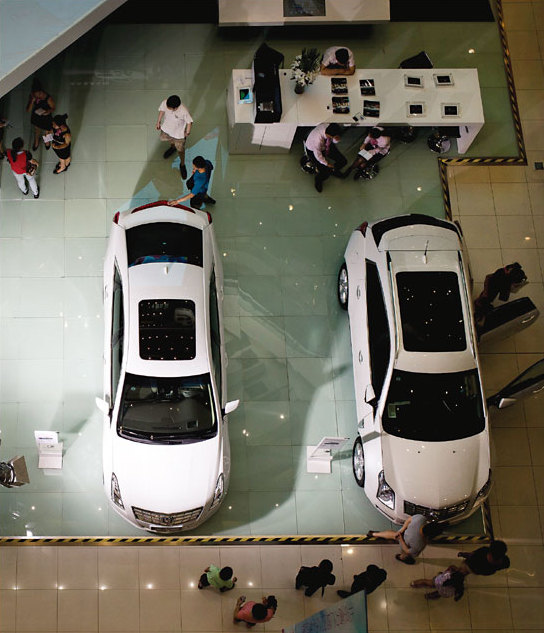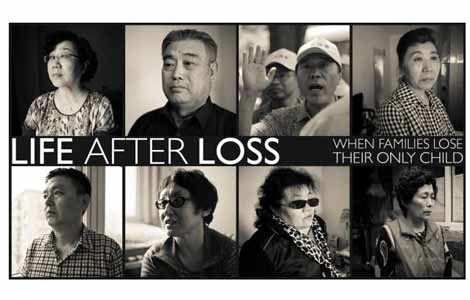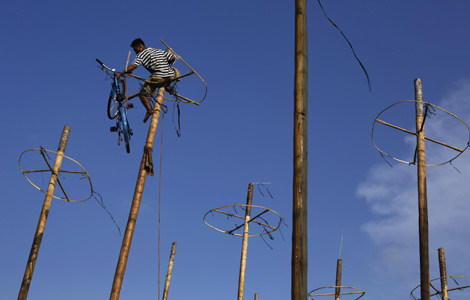Lemon law may sweeten bad deals
Updated: 2013-10-03 11:05
By Michael Barris in New York (China Daily)
|
||||||||
Tough new vehicle-warranty laws in China may benefit the consumer, but they also could increase costs for small local automakers who lack the "deep pockets" and engineering know-how to meet the new standards, analysts said.
"The burden will be on domestic automakers, which will have to step up their game in terms of quality," said Dave Zoia, editorial director of the Ward's Auto news and information website.
Several years in the making, the "lemon law" that took effect Tuesday lets consumers get free repairs and replace defective vehicles. For instance, steering or brake problems that go unresolved after two repairs within a two-year, 30,000-mile warranty period will bring a full refund or vehicle replacement.
Zoia told China Daily that while major auto brands such as General Motors Corp of the US and Japan's Toyota Motor Corp could handle the stiffer laws comfortably, smaller, little-known car makers with less stringent quality control could be caught in a squeeze.
|
Chinese shoppers inspect Cadillacs on display at a shopping mall in Beijing. China introduced stricter auto warranty regulations on Tuesday. Andy Wong / AP |
"The multinationals should have no problem complying, because they are used to meeting similar regulations in their home countries, such as the US," Zoia said. "The burden will be on domestic automakers, which will have to step up their game in terms of quality. That may require some investment, as well as new sources for parts and changes in manufacturing practices."
Tim Dunne, director of global automotive operations at JD Power and Associates, said he was not sure the tougher new rules would raise costs for smaller local players.
"You have to look at the engineering and production quality levels and sales volumes of many competitors," Dunne said. The lemon law could produce a long-term cost savings for consumers, "because improved quality usually leads to better dependability and longer use".
"The biggest impact will be on the smaller domestic companies that don't have the deep pockets or engineering prowess to meet stricter safety standards quickly and efficiently," Dunne said.
Zoia said he expected the higher quality standards to force smaller, weaker players to consolidate their operations. China's leaders see consolidation as a way to create bigger and more globally competitive companies in a country where the industry is deeply fragmented.
"As quality and regulatory standards rise, that will cause a process of natural selection, where the strong adjust and survive and the weak are either acquired by stronger players, merge with each other in the hopes of forming a more competitive company or simply disappear," Zoia said. "The end result will be a better, more globally competitive auto industry in China."
Zoia said China's having the world's largest auto market makes stronger vehicle-warranty laws necessary. "With the importance of China in the world market, it is only natural for the country to begin to require higher levels of quality, as well as ratchet up its emissions and fuel-economy standards to global levels," Zoia said. "Doing so will put its industry on a more competitive footing worldwide, and potentially allow automakers to export to other markets."
Dunne said the stricter quality laws both increase safety for consumers and push the industry to innovate. "No country wants industries that compete solely on low price," the analyst said. "When this happens, the quality-dependability-reliability of the product invariably suffers. It's much better to compete on a product-basis - determine who makes the best product?"
In other protections provided under the new law, if an issue or problem appears more than five times after repair, the owner can swap the car for a new one.
michaelbarris@chinadailyusa.com
(China Daily USA 10/03/2013 page2)

 Xi pledges to boost ties with Indonesia
Xi pledges to boost ties with Indonesia
 Little room for growth among high-end hotels
Little room for growth among high-end hotels
 Diplomatic game
Diplomatic game
 The first place to be called the 'Middle Kingdom'
The first place to be called the 'Middle Kingdom'
 Lavish wedding ebbs under luxury ban
Lavish wedding ebbs under luxury ban
 Travel becomes passport to a new look
Travel becomes passport to a new look
 Impasse in Congress shuts down services
Impasse in Congress shuts down services
 Li, Serena cruise on, Venus out at China Open
Li, Serena cruise on, Venus out at China Open
Most Viewed
Editor's Picks

|

|

|

|

|

|
Today's Top News
Obama, congressional leaders still deadlocked
Xi to address Indonesia's parliament
Russian embassy in Tripoli attacked
Iran has proposal for nuclear deal
The luxury of travel
US novelist Tom Clancy dies at 66
China, Indonesia renew currency swap deal
Obama cuts short Asia trip
US Weekly

|

|






